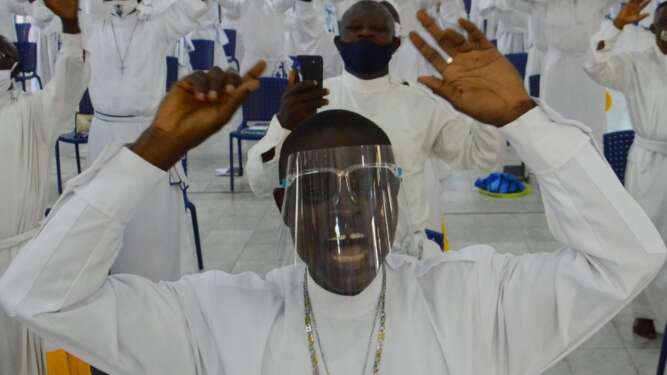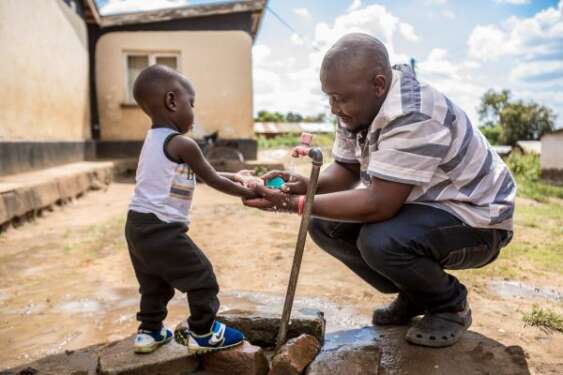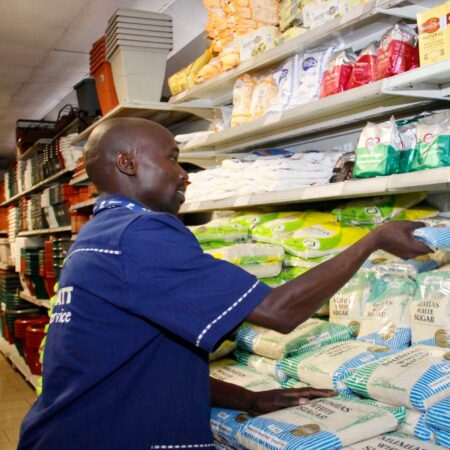Education is the lifeline of development in Africa. At present, things are changing rapidly within the African education domain. Modern technology is now transforming learning in classrooms in South Africa, Nigeria, Kenya, Tanzania and Rwanda to mention a few.
African states, just as other nations across the globe, are experiencing economic shocks from the coronavirus (COVID-19), which forced 250 million African children to stay home.
Across the region, children were out of school for various periods. In Kenya, children remained home for the entire course of 2020 since March, while Tanzania’s school shutdown lasted for three months.
School closure did not only limit learning institutions from garnering decent income but brought trouble to students as key findings from Human Rights Watch argued that students in Congo and Zambia were losing out on lessons as no learning alternatives (eLearning) were available.
In that context, eLearning Africa News shows that lack of access to technology is the biggest barrier to distant learning during the pandemic and before the virus.
There are different things that the pandemic brought to the table across the education landscape in the continent. For instance, innovation in education scored decent attention across tech stakeholders. In Tanzania, MyElimu an eLearning platform upgraded its lessons to fit large numbers of students stuck at home hungry for learning materials.
World Economic Forum (WEF) argues that the recent technological influx in Africa ought to be capitalized towards the education sector, which was affected greatly by the pandemic.
More importantly, the education sector changes can only become a reality if governments across the region can duly invest in free, high-quality online education for all Africans (WEF, 2020).

Although the digital divide brings a dark cloud over Africa—only three-quarters of the population in sub-Saharan Africa (747 million people have mobile connection according to GSMA, a mobile operator trade body)—the discussion of utilizing Edu-tech has gained wide attention.
READ:How to achieve safe reopening of Africa post Covid-19
Africa’s second top economy, South Africa is ranked as a nation with the most expensive data in the world limiting rural-dweller desires to blend into the digital learning sphere. With such scenarios it is crucial to rethink how education systems ought to be built.
According to WEF October 09, 2020 publication, ‘How can Africa prepare its education system for the post-COVID world?’ there is much Africa needs to execute on a regional basis while putting equity and sustainability at the forefront.
In South Africa, the strict lockdown inspired STEM Digital Lockdown school partnership with the Department of Basic Education launched by Africa Teen Geeks (ATG) an edu-tech startup based in South Africa.
As good as the artificial-intelligence–based education platform (MsZora) and being available to all South Africans with access to computers and internet, out of more than 12 million learners in the basic education system, the service reached 500,000 children.
Despite such efforts made by ATG and other actors in East Africa – ShuleDirect and MyElimu (Tanzania) still there are setbacks limiting children from exploring the crucial role of eLearning in the 21–century world.
Hence WEF publication shed some light on various grey areas that are worth noting to push Africa away from this predicament.
The digital divide in Africa
Internet speeds in Africa are comparatively lower than the rest of the world. As the internet becomes the new currency for social development and efficiency, data shows at least 17 countries out of 30 with slower internet connections are found in Africa (infomineo).
Further, WEF argues that nearly 31 per cent of the global population has no 3G connection and 15 per cent has no electricity. In Sub-Saharan Africa at least 600 million people don’t have electricity—which divides further the interconnectivity agenda.
The cost of connectivity and devices is also a factor. High data prices are still a challenge in the eLearning landscape, adding poverty and cost of smartphones to families living below the poverty line, marring efforts even further. WEF argues that broadband is only affordable to 100 per cent of the population living in only 29 countries worldwide.
Despite 45 per cent of people in Sub-Sahara being subscribed to mobile services and 5G introduced by Vodacom and MTN (GSMA, 2021), penetrating through eLearning will be challenging as local use becomes hard or nearly impossible (WEF, 2020)
“By its very nature, online learning creates barriers, with the vast majority (80 per cent) of online content only available in 10 languages. By some estimates, Africa has approximately 2,000 different languages. There is still a general scepticism regarding the use of technology in some communities, with many trusting only what they can physically see and use themselves,” WEF publication reads in part.
READ:Kenya’s president calls on African leaders to harmonise Covid protocols
Practical approaches towards robust eLearning
As mobile network operators plan to invest nearly $52 billion in infrastructure rollouts between 2019 and 2025 across Sub-Saharan Africa and with smartphone adoption reaching to 50 per cent total connects in 2020, we can term internet as a basic need that has to be acquired by any means necessary.
The internet is not a new thing anymore and the region ought to utilize its collective resources to develop Africa-oriented broadband infrastructures, which are regionally funded to accelerate the domestication of internet and its effective utilization for education development.
READ:EABC calls for standardisation of Covid-19 charges
Pacts such as East African Community (EAC) and Southern African Development Community (SADC) Africa have already demonstrated that they can transform the region collectively and changing education systems could be a suitable ground.
“Education infrastructure particularly in rural areas is in crisis with many schools without access to clean water and sanitation facilities. Approximately 70 per cent of schools in South Africa do not have a library, and 81 per cent do not have a laboratory,” the WEF publication noted.
Distant learning should be prioritized across the region. East Africa became a great example in putting eLearning on its own pedestal. Rwanda, Kenya and Tanzania’s startups brought their best knowledge and interventions to provide eLearning opportunities for learners across their respective nations.
Fusing digital skills and education curriculums ought to be the new normal in African education systems, as it is the future fashion of learning and building African nations of creative human capital.
This is put to life by Rwanda, which through its very own “One Laptop per Child” initiative brought up the computer literacy potential in children, which outmatched teachers training students.
“Education recovery involves the assessment and revision of the academic curriculum to be relevant and reflective of market demands and local realities while catering to a non-physical environment. Fully aware that jobs of the future will require new skills, the Department of Basic Education in South Africa is currently developing the Coding & Robotics curriculum to close the digital skills gap between what we have and what the industry will be looking for. Revised education systems need to be able to produce both employees and entrepreneurs,” WEF publication argued.
There are plenty of great ideas in Africa about education development. Technology is a tool and not the solution to the effective acquisition of knowledge for children. With only joint-collaboration between community members, tech-stakeholders and the government, sustainable education systems can be transformative across the continent.
READ:Zimbabwe business suffer under new Covid lockdown











